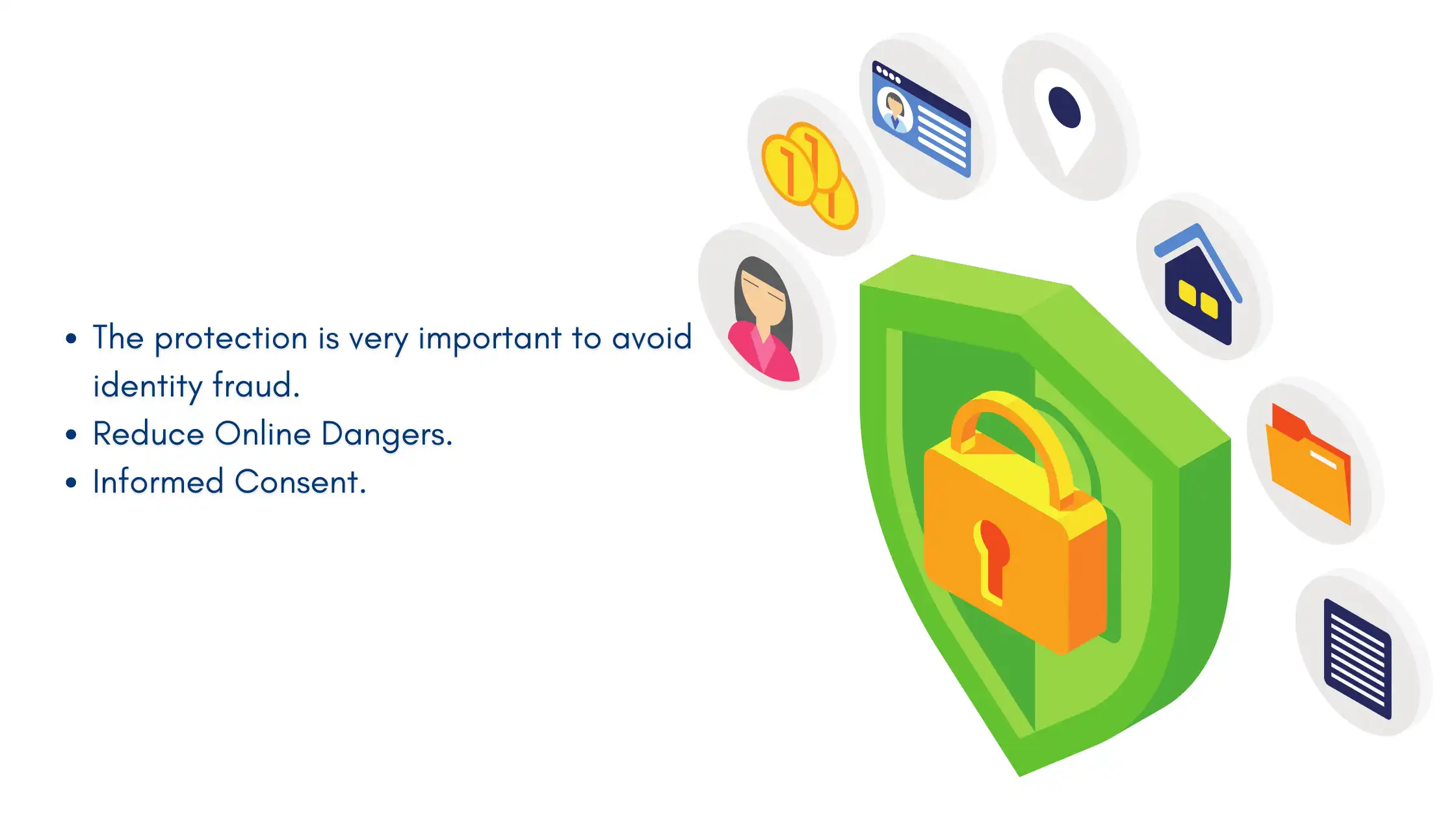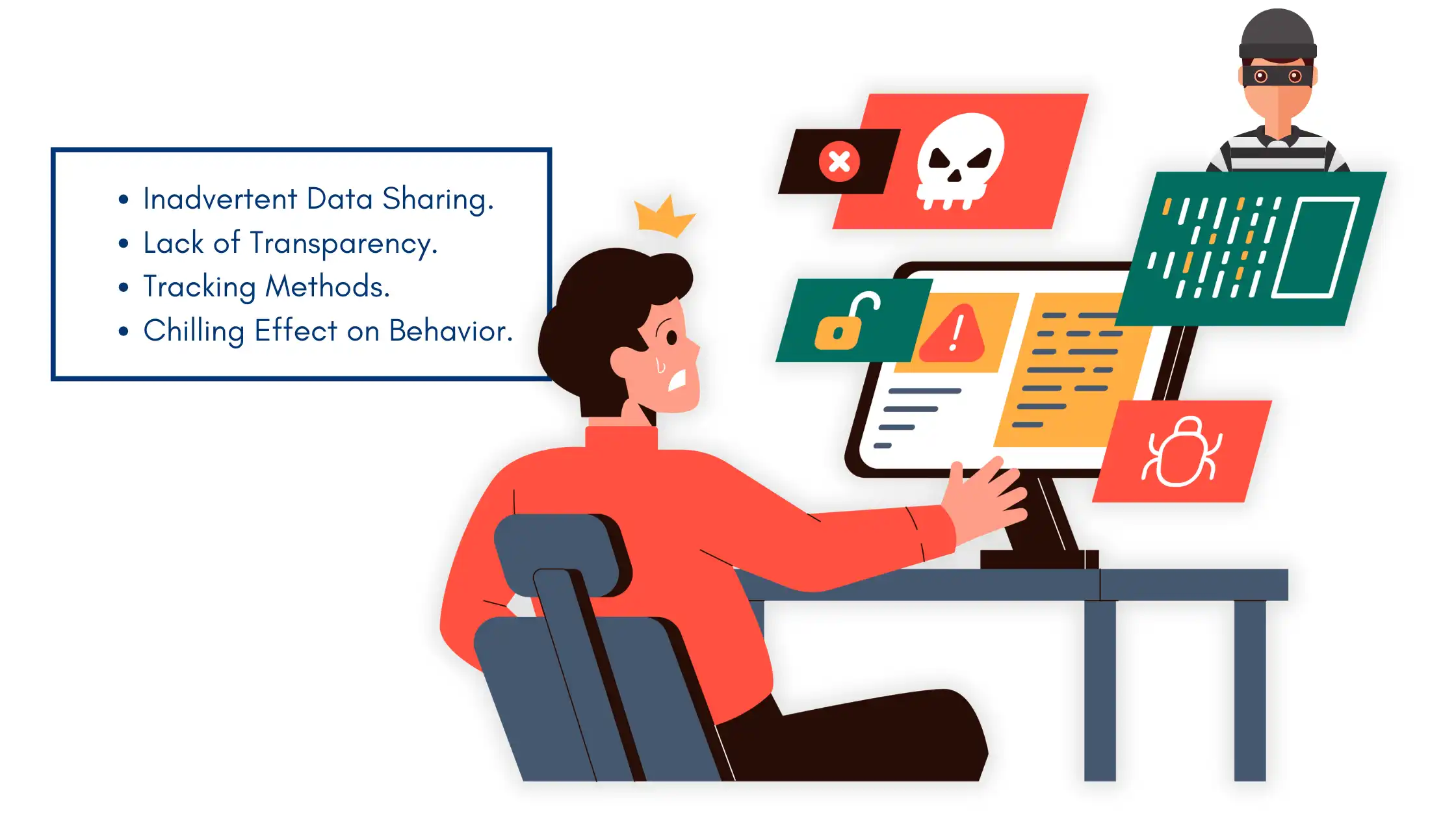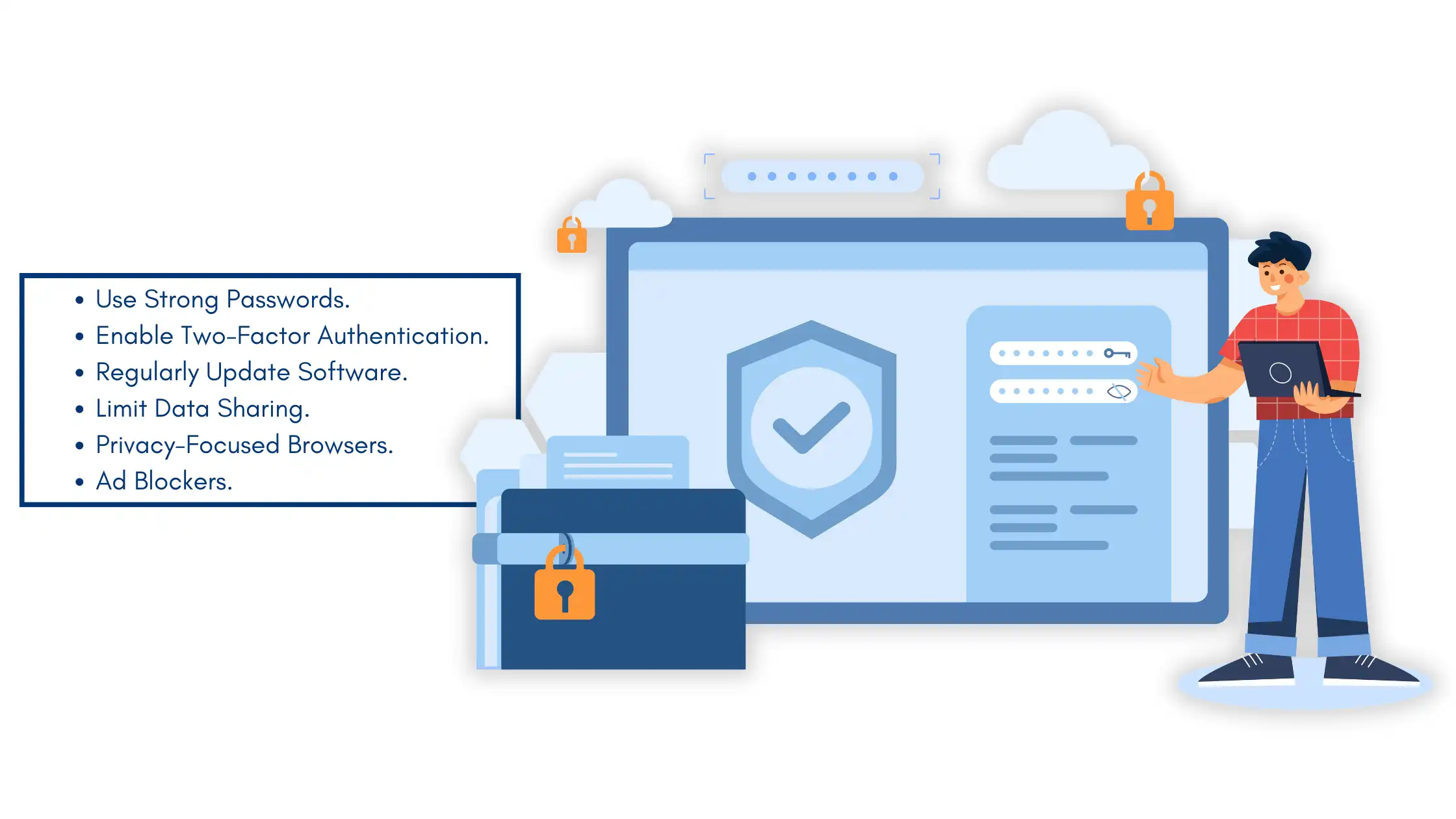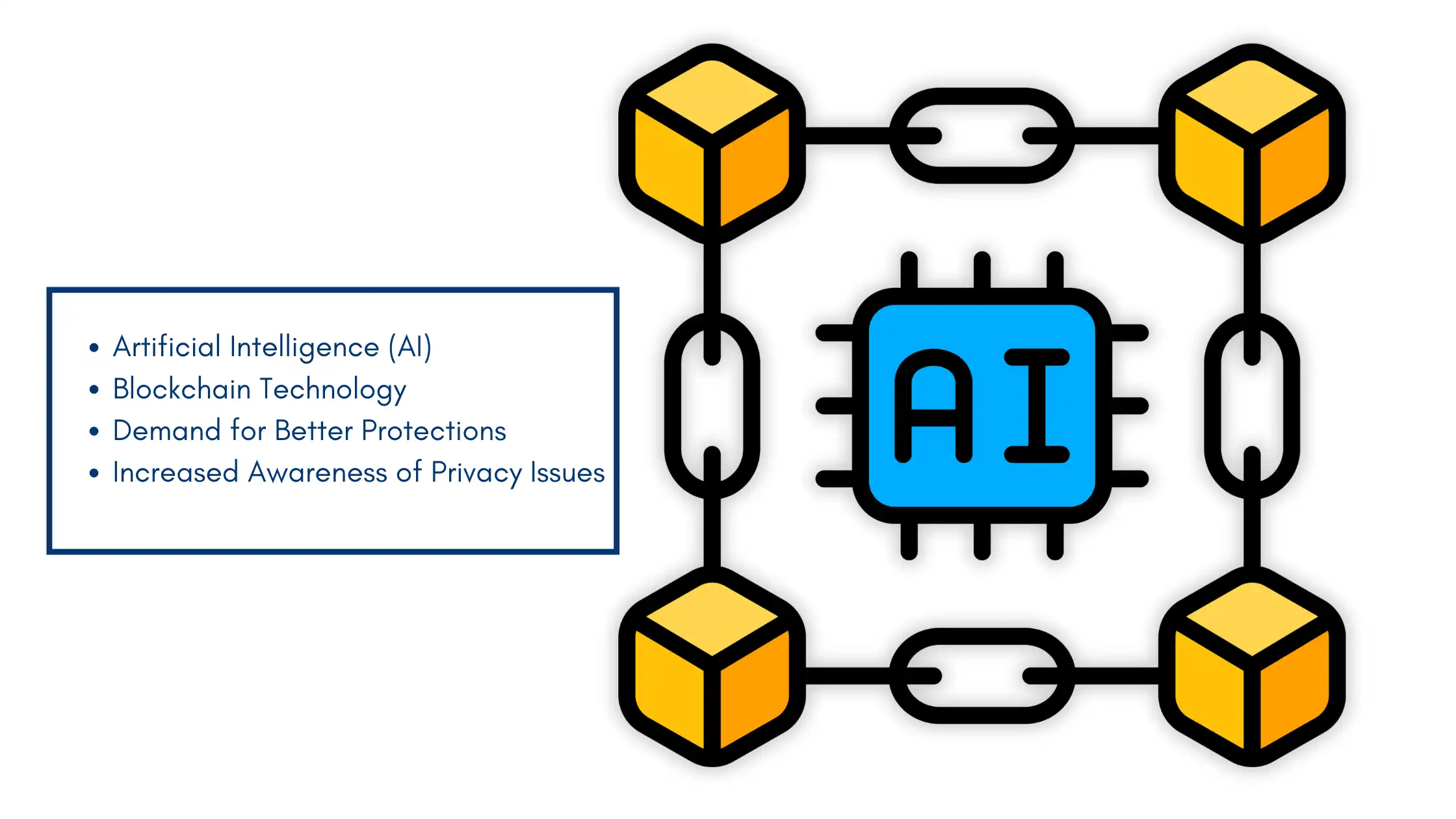Online privacy is the individual’s right to decide over their data as well as its collection, utilization, and dissemination in cyberspace.
Understanding what is online privacy is crucial, especially in a modern society so heavily dependent on the internet, where users’ data is highly susceptible to invasion and misuse.
By having a good approach to the privacy of persons, they shall achieve better results and feel secure while using technology.
In 2024, the analysis of 10,626 public data breaches revealed that organizations have lost 9 billion records and confirmed that data breaches remain an urgent issue in the modern world.
Such a shocking figure should remind everyone and all the organisations about the necessity to pay due attention to data safety and confidentiality.
Why is Online Privacy Important?

Cyber Security
- Preventing Identity Theft: The protection of personal data is very important to avoid identity fraud, in which the perpetrators use the stolen data to mimic the characters for monetary gains. Thus, by guarding personal and fiscal identity like social security numbers, bank accounts, and credit card details, people can limit the possibility of becoming identity theft victims.
- Mitigating Cyberbullying: Cyberbullying is one of the major ways through which online privacy helps in enhancing the protection of individuals, specifically kids and teenagers. Controlling information that is disclosed to the public minimizes contact with potential offenders, helping to protect internet privacy and keep them away, hence improving the security of clients.
- Reducing Online Dangers: The data that is collected from individuals can be used in many ways by malicious people for the wrong purpose like phishing, cheating people, or stalking them. Thus, the issue with online dangers arises from the fact that privacy practices can help one avoid turning into a target for such threats, which improves the general safety of a person on the Internet.
Possession of Own Information
- Empowerment Through Control: Thus, an ability to keep personal information under control is crucial for people to regain a sense of agency regarding their interactions online. This way the users are fully aware of what data they wish to share and with whom, thus enabling personal protection of users’ data.
- Informed Consent: The general public has to possess the opportunity to agree or dissent as regards the gathering and use of personal data relating to them. Some of the positives that belong to those rights include the following: Thus, users will be able to safeguard their profiles from these malicious personnel through exercising control over the data.
- Building Trust: This shows that when user’ personal details are in their own hands, there is always trust in the online solutions and sites. Consumers are more loyal to companies that respect their privacy and ensure them of that right hence customer relations.
- Mitigating Data Misuse: This way, people can prevent many potentially improper uses of information by third parties, such as advertisers, data brokers, and even criminal elements. This control is useful to prevent discussions from the opposite gender or anyone the account owner does not interact with and the use of the information can be exploitative.

- Lightning-fast speeds to browse without lag
- Servers in 105+ countries around the globe
- Military-grade security to stay safe online
- Try it risk-free with its money-back guarantee
- Native apps for all major devices
Common Threats To Your Online Privacy

Data Collection Practices
- Extent of Data Collection: Seemingly, many organizations inclusive of governmental institutions, follow specific data harvesting procedures in a way that many of them do not require the user’s direct consent. This category involves tracking the user’s activities on the World Wide Web, the purchase behavior, and data such as geographical location through technologies such as cookies and, mobile applications.
- Inadvertent Data Sharing: This is because many of the users may convey their details to the apps surreptitiously for instance in the comment section or through social networks. Information of this type is gathered and compiled by a lot of firms for advertising and analytical purposes.
- Lack of Transparency: These privacy policies are normally complex and hence the users never fully understand how their data is collected, used, and shared with third parties. Almost every firm today uses a lot of infancy in the policies that they have to disaggregate what they offer through the terms of service.
- Government Data Collection: Administrations also compile data for various reasons including security in a given country, protection of the society, etc. Thus it encompasses mass surveillance that observes various activities of the citizens on social networks hence raising issues on the privacy citizens have on governmental surveillance.
Surveillance and Tracking
- Implications of Surveillance Technologies: Using technologies such as CCTV surveillance and facial recognition are employed that are enforcement technologies that are implemented in public spaces. , these technologies may give security but they encroach on the privacy of a person since they give a constant track of movements of a person.
- Tracking Methods: The most used tracking methods are cookies, tagging through web beacons, or identifying each device by the method called device fingerprinting to receive detailed information about users’ activity. These tracking procedures can lead to the conduct of a complete profile of users which is utilized in selling advertisement space or even sold to third parties without referring to the actual user.
- Erosion of Anonymity: Author surveillance, tracking, and monitoring deny the spirit of people’s privacy in the public and cyberspace domain. This aspect reduces people’s freedom of speech and usage of the site when they come to know their activity on the site is being monitored, especially when people are using the site for social interaction by posting their opinions.
- Chilling Effect on Behavior: This tends leading to what is widely known as the chilling effect in which citizens alter their behavior to avoid apprehension. It can also negate individuals’ rights and hush people’s opinions, specifically on subjects that certain stakeholders consider off-limits.
Strategies For Protecting Online Privacy

Best Practices for Individuals
- Use Strong Passwords: However the passcodes should not be easily guess-able and to do this one has to choose more than 8 characters that contain letters, numbers, and symbols. Most importantly do not use identifiers that are apparent to hackers; Ken Keys, 123, ABC, and all Shakespeare-related names. One should also set high-security passwords and refrain from reusing the password on other accounts by using for instance a password generator to come up with a new password for every application.
- Enable Two-Factor Authentication (2FA): Use 2FA every time there is an opportunity to apply 2FA since it is a secure feature. This makes it more secure than those that require just a password for the user to gain access to their account as a form of security check the account will prompt the user to enter a text code received in the phone or a code generated by an authentication app in the phone.
- Regularly Update Software: The peculiarities of cyber vices and the dexterity with which hackers work to make updates of the operating systems, applications, and security software crucial since this shields you against them. Facilitating the updating function each time it can be done.
- Review Privacy Settings: It is also worth always and regularly narrowing down the privacy settings of the accounts in the social networks and other used internet resources. Provide less private information online and adjust the settings of the devices to decrease acquisition.
- Be Cautious with Public Wi-Fi: There is no need to open delicate data or do any monetary dealings with a community association. In some cases, connect with a VPN to secure your internet connection, since in some cases VPN has gained a lot of popularity among computer users.
- Educate Yourself on Phishing: It is best to not respond to emails from unknown persons and it is also best to avoid any links or attachments that you are unsure are okay to click on. If you have received an email from a sender requesting that you respond or send them some of your personal information, you should not respond directly to the email without contacting the sender and ascertaining that the email you received was genuine.
- Limit Data Sharing: Use the feature of filtering the info that you want to share on the given social sites. Data must only be released where it is necessary to do so and this must first be done by asking why it is needed.
Use Privacy-Enhancing Technologies
- VPNs (Virtual Private Networks): VPNs help secure your web connection thanks to encryption of your internet connection and hiding of your IP address. This is especially important when you are roaming and connected to the internet via a public Wi-Fi connection, where there is a high risk on public Wi-Fi of your data being intercepted.
- Encrypted Messaging Apps: Always employ messaging systems that have encryption at the end-user level such as Signal or WhatsApp. This ensures that all the contents of the message most especially the chat only appear to the sender and the recipient of the message respectively.
- Privacy-Focused Browsers It is recommended to use browsers that have privacy features included, for instance, Brave or Firefox browsers. These browsers prevent the tracking of your activity and reduce the number of ads that you can see making your browsing more private.
- Secure Search Engines: It is recommended to use search engines that do not retain your search history, or in fact, they do not gather your personal information whatsoever such as DuckDuckGo. This prevents the outgoing searches from being traced back to the researcher while using the World Wide Web.
- Ad Blockers: This can be achieved by making sure that you download ad-blocking extensions so that you can minimize those ads and scripts that try to track your data usage on the internet.
- Data Minimization Tools: Apply the utilization of tools that restrain the quantity of the disclosure of information, like the browsers’ add-ons that hinder cookies or scripts applied to monitor user activity.
Prediction of The Future Trends In Online Privacy


Uninterrupted, high-speed browsing, zero logs so your online activity is always private.
Over 7000 people checked out NordVPN in the last month
There are some of the technologies that are emerging. They are
Artificial Intelligence (AI)
AI can be useful in improving privacy protection measures and protecting users’ data, for instance, by detecting anomalous users’ behavior potentially indicating a breach.
AI helps a lot in cybersecurity, but it also comes with a high cost and privacy violation. Most AI systems demand huge amounts of personal data to work optimally, which makes the majority of AI systems susceptible to hacking and other unlawful accesses.
The predetermining of information can also pose a threat to privacy protection since AI can work on concealed data to establish such details as health or economic standing.
Blockchain Technology
Based on the elements that make blockchain appealing as a solution to different issues, it can be used as a potential way to improve the level of control over own data online and boost overall privacy.
Blockchain can incorporate cryptographic techniques that help in the proper data storing that allows it to be accessed only by rightful users.
Thus, while blockchain’s life cycle is highly reliable because of its ability to resist changes made post-creation, it presents issues since data cannot be edited or deleted as required by privacy regulations such as the right to be forgotten.
So as the AI and blockchain technologies develop, there is going to be a necessity to establish new rules regulating the issue of AI’s privacy protection.
It will be crucial for policymakers to analyze if these technologies will be beneficial in their terms and conditions of implementation, besides assuring that individual privacy rights will not be violated and that ethical standards will be met.
Let us also tell about some of the thing that the users are experiencing. The things are:
Increased Awareness of Privacy Issues
Since many and often large-scale companies fail to protect users’ data, the public grows increasingly concerned with personal data confidentiality.
This change of awareness has led to new expectations particularly regarding the collection of data by firms where users want more control and informational use.
Demand for Better Protections
Customers also want more privacy protection from firms; they are waiting for firms to develop good practices such as providing information relating to the use of their data, limiting the collection of data, and respecting the right not to share their data.
There is also tend of demanding corporate organisations that market their products and services online to acknowledge user’s privacy than to gain profit at their expense.
Shift Towards Privacy-Centric Services
It has been quite appropriately observed that there is a trend to shift from goods to services and products that accord greater respect to users’ privacy and Personal Data Security.
The security and privacy included here are private web browsers, encrypted means of communication, and applications and websites that do not track users’ actions.
Such firms that are unable the said expectations stand an immense risk of seeing their brand image and customer loyalty diminished.
Hence, it would be possible to conclude that the postmodern society experiences new threats and opportunities for the enforcement of online privacy due to IAS introduction and Blockchain proactivity.
With additional awareness of the risks that customers face, there is a growing call for better security, which effectively transforms user protection into a preventive measure that involves both the firms and the authorities.
FAQs
What is on-line privacy?
Why is online privacy important?
What are common threats to inline privacy?
How can the individuals protect their online privacy?
Conclusion
Thus, privacy and especially, Internet privacy defines the essential parts of the life of those people who use the Internet and demonstrates the necessity of preserving the information posted through the Internet.
Thus, in the context of the tendency of the contemporary world toward globalization and the growth of using information technologies, aspiring to use the Internet, individuals need to indicate and protect their rights to privacy, particularly in light of emerging online privacy trends.
Not only does it shield one’s life, including identity and various personal and private data that can easily be hacked or leaked, but it also empowers the user with the authority of the data.
Thus, the practices and privacy preserving tools enable everybody to feel protected in the times of even deeper assimilation.






